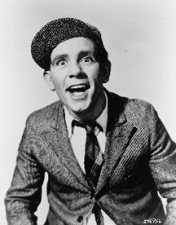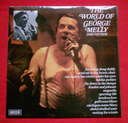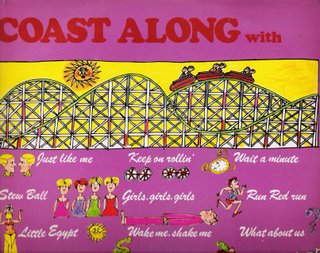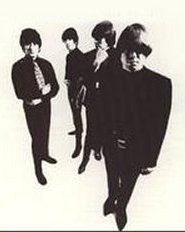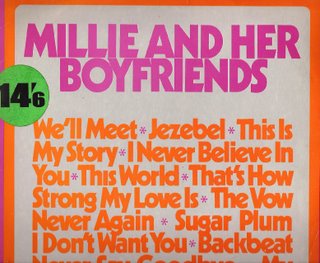
A rather distressed LP from Brick Lane I bought many years ago. I went through a phase of collecting old Ska and Reggae singles and albums from the 60's and 70's. This has Millie Small of "My Boy Lollipop" fame and several male stars of the Jamaican reggae scene back then. Owen Gray, Jackie Mitto, and Roland Alphonso amongst others.
"Born Millicent Small in Clarendon, she was the daughter of an overseer on a sugar plantation and she was one of the very few female singers in the early Ska era in Clarendon. She was already recording in her teens for Sir Coxone Dodd's Studio One label with Roy Panton (as the duo Roy & Millie), together they produced the hit "We'll Meet." She was brought her to England in late 1963 by Chris Blackwell who would later discover Bob Marley. Her fourth recording, "My Boy Lollipop," cut in London by a group of session musicians including guitarist Ernest Ranglin and featured Smalls childlike, extremely high-pitched vocals became of the few international ska hits reaching number two in the U.S. and number one in the U.K. in 1964. It remains one of the biggest-selling reggae or ska discs of all time with more than seven million sales.
She was perceived as a one-hit wonder novelty artist and she only made the Top 40 one more time, with the "My Boy Lollipop" sound-alike "Sweet William." She released an entire album with these two hits. In a trivial piece of information legend has it that popular British singer Rod Stewart played the Harmonica on "lollipop", more significantly the earnings from the sales of "lollipop", Chris Blackwell's first hit helped him to secure a strong firm hold in the music industry to later cultivate the likes of Reggae legend Bob Marley and Rock groups such as U2."
For more about the history of ska music go HERE
Roy and Millie - We'll Meet
Owen and Millie - Sugar Plum
Roland Alphonso - Backbeat
These You Send It files are available for seven days or until exhausted.


